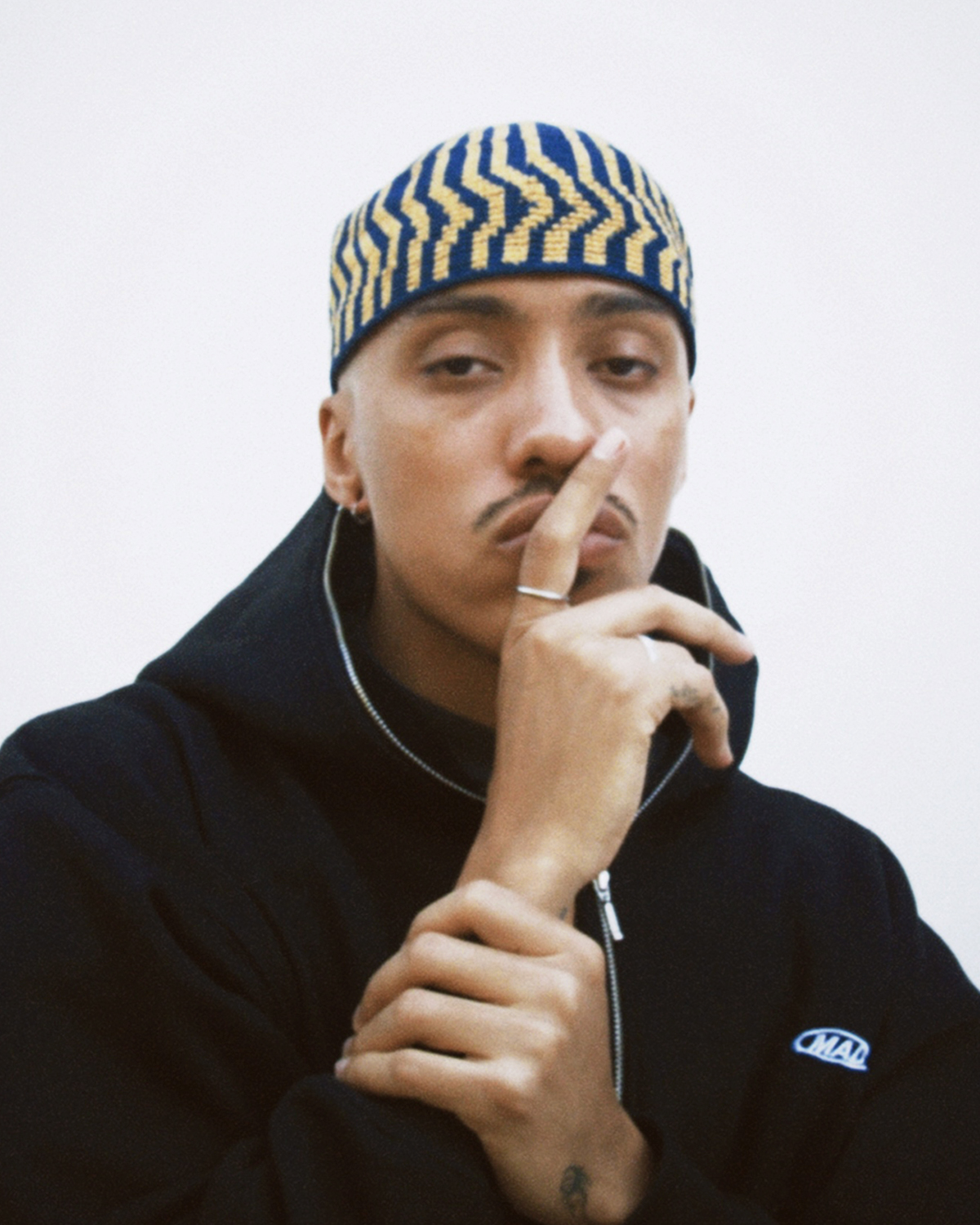When Roniere Santos was growing up in the greater São Paulo area, his mother would buy CD compilations from street vendors and play them on a small stereo at home. They featured just about anything: tracks by the emo artist Pitty, releases from the funk carioca label Furacão 2000, Brazilian rap. “I was so young: I must have been around nine or ten then,” he says, fresh-faced in a green cap. But the songs made a lasting impression on him.
Now 31, Santos DJs and produces under the name RHR. His work straddles techno, bass, dancehall and baile funk; he still thinks of those afternoons with his mother as his first “purposeful” encounters with music. “I started buying CDs too, and my friends and I would swap records: at the time, we’d listen to a lot of proibidão, which was the kind of funk that was popular then,” he says of the Brazilian genre, which originated in Brazil’s favelas in the 1980s. “Lots of American rap, too.”
Santos’ introduction to other types of electronic music, however, came later. “I played football with this guy and got to know his brother, who was going to raves outside Londrina at the time. He was always listening to lounge and deep house – not the deep house people listen to now, I’m talking about old-school stuff – and it was always so percussive, and so progressive,” he says. “The first time I heard it, I thought, What’s that?”
“My parents expected me to follow a traditional path.”
In the months that followed, they started going out together and Santos got involved with the scene as a club promoter. When a friend asked him if he’d ever considered DJing, something clicked. “I enrolled in this audio production course in a city 100 km from Londrina called Maringá, and started playing gigs in the area,” he says. Within a year, Santos was one of the scene’s biggest names.
At first, his parents weren’t thrilled with the idea of him becoming a DJ. “We don’t have money and they expected me to follow a more traditional path,” he says. But when his mother, a domestic worker at the time, began hearing about her son’s music from friends and clients, they warmed up to the idea. “She went to one of her client’s houses one day and the daughter told her she was going to one of my shows that night,” Santos recalls. “Other times, my parents would spot flyers advertising a festival I was playing at.”
People outside Londrina started paying attention too. After the US DJ Danny Daze found his work, Santos moved to São Paulo; lately, he’s been spending a lot of time in Europe (he’s in Amsterdam when we speak). His days have become busier. And while he has plans to release an EP with the Berlin-based label Pan and launch his own record label in the near future (“the plan is to start in Brazil, then expand to the rest of Latin America,”) Santos is trying to focus on the short-term for now. “If you think too much, you miss out on surprises,” he says. “And I love surprises.”
